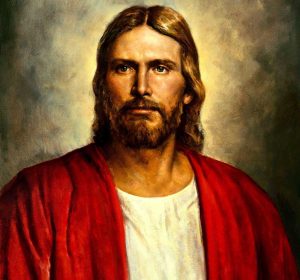HOMILY LENT WEEK 04 01 – Year II
New Creation through Faith and Love
(Isaiah 65:17-21; Ps 30; Jn 4:43-54)
********************************************
How strong is your faith? How deep is your love?
Important questions, these, because today’s liturgy invites us to be part of God’s new creation through faith in Jesus, and love for one another
In the first reading, Isaiah prophesies God will bring about a new creation, a new heaven and a new earth. That new creation will be a blessed experience of joy in the Lord.
 In the Gospel, we see that new creation coming about in the person and ministry of Jesus – through belief in him and his love for the poor and needy. The royal official is challenged to grow in faith, even as Jesus responds to his request to heal his son out of love and compassion. Because of the partial faith of the official in the Word of Jesus, the miracle happens, and both the official and his household, we are told, believe in Jesus. The royal official’s weeping and concern turns to delight and joy as he discovers his son is healed.
In the Gospel, we see that new creation coming about in the person and ministry of Jesus – through belief in him and his love for the poor and needy. The royal official is challenged to grow in faith, even as Jesus responds to his request to heal his son out of love and compassion. Because of the partial faith of the official in the Word of Jesus, the miracle happens, and both the official and his household, we are told, believe in Jesus. The royal official’s weeping and concern turns to delight and joy as he discovers his son is healed.
In the movie by Mel Gibson, the Passion of the Christ, there is a poignant scene where Jesus meets his mother as he carries his cross, bloody and beaten. Mary reaches out to him with the words, “I am here” as she gazes with sorrow and compassion on her Son. Jesus responds with one simple yet profound sentence – “See, mother, I make all things new.”
It is a striking scene and statement. A man on the verge of collapse from the weight of the cross and the torture afflicted on him, is claiming to be the author of a new creation. Yet we know that is what happened. Through his suffering, death and resurrection, and the gift of his Spirit to the Church at Pentecost, Jesus truly has made everything new. He is bringing about a new heaven and a new earth, the reign of God here and now, for those who believe in him, and love others as he has loved us.
This incident can be a source of encouragement, strength and hope for the world as it struggles with the Coronavirus Covid-19, and now the wars in Ukraine, Gaza and the Sudan. As devastating and overwhelming as both the pandemic and these wars seem, God who allowed the crucifixion of his Son Jesus, will undoubtedly draw good out of these catastrophes, and is already doing so in all kinds of surprising ways – people caring for others, encouraging others, countries accepting refugees, front line workers risking their lives to help the sick, researchers collaborating globally to find a cure, clergy putting Eucharist celebrations and homilies on line to reach out to the homebound, etc.
There is another surprising element of newness in the healing of the royal official’s son and that is a radical inclusivity and acceptance in the ministry of Jesus. For a non-Jew of nobility to trust in an itinerant Jewish healer with no formal credentials is certainly a breakthrough into newness. This is also one of the few examples of a non-local healing of a non-Jew in Jesus’ ministry.
As Richard Rohr points out, there is no mention whatsoever of any checklist of beliefs, no correct loyalty systems, no asking whether the royal official is in a regular marriage or has made a good confession of his sins. There is only mercy, compassion, inclusion, acceptance and above all, healing. It seems rather irresponsible of Jesus, does it not? But does this not also resonate with Pope Francis washing the feet of prisoners, women, even non-Christians on Holy Thursday? Surely there is a message here especially for those who were upset by this action of the pope that is so similar to the indiscriminate healing of Jesus.
Healer: that’s why he came and who he is. In Jesus, divinity and humanity meet. His hands and mouth and his eyes, his whole body becomes a conduit of God’s energy. What’s God’s energy, God’s purpose? To set right a world gone wrong, a suffering world. Out of every pore of his body, Jesus expresses the healing love of God.
Jesus’ ministry of healing expresses in history God’s ultimate intention for the world. In Jesus we see a hint of that world to come where there will be no more suffering, no more sadness, no more sickness.
The Eucharist is a foretaste of that heavenly banquet that is part of the newness that Jesus is bringing about. May our attentiveness to the Word of God empower us to participate in that new heaven and new earth by our faith in Jesus, our openness to newness, and our love for one another.



